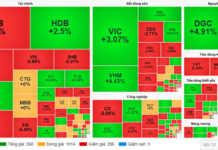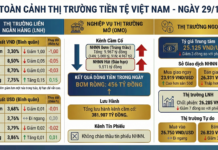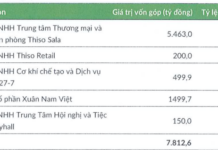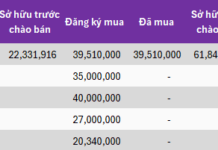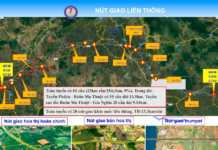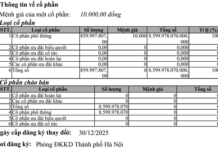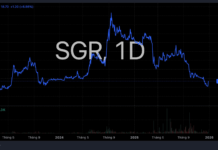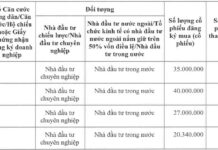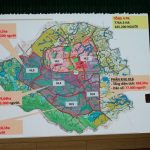On July 5th, the Ho Chi Minh City Department of Natural Resources and Environment organized a conference to deploy Decree No. 71/NĐ-CP, issued by the government on June 27, 2024, regarding land prices.
Mr. Dao Quang Duong, Deputy Head of the Land Economy Department under the Department of Natural Resources and Environment, stated that the main point of Decree 71 is to provide detailed guidance on Articles 158, 159, 160, 162, and 257 of the amended Land Law, which will come into effect on August 1st.
Decree 71 introduces four important new points, including a more specific and comprehensive method for calculating surplus, taking into account various types of costs and revenues. This will simplify the process of determining land prices. The authority to issue land price decisions now rests with the chairpersons of the People’s Committees at the provincial and district levels, marking a departure from previous regulations. Adjusting the new price list does not require the approval of the Standing Committee of the Provincial People’s Council. Additionally, the annual land lease is not subject to the regulation of VND 30 billion or less for real estate value.
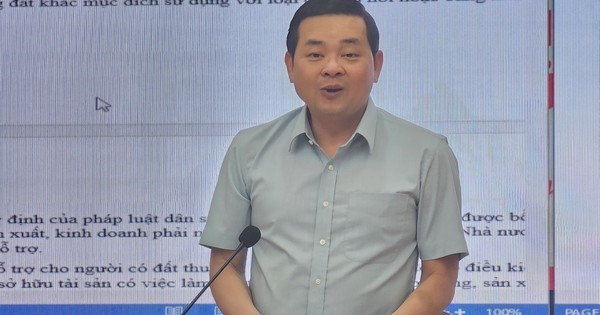
Determining land prices early based on market prices will resolve obstacles for many real estate projects. |
According to Mr. Duong, the new surplus method is more open, easier to implement, and clearer. It reasonably takes into account various business expenses, such as interest expenses, expected price fluctuation provisions, and land investment costs.
“In the past, land price determination has left many unresolved issues. Obtaining comprehensive information for land price determination has been challenging, leading to cases where a unit had to hire 30 different appraisers without success,” Mr. Duong emphasized. “There are also unique and subjective cases, such as determining land prices for parks, hospitals, schools, and zoos.”
At the conference, the Natural Resources and Environment Departments of the city’s districts suggested the need for specific guidance on the source of funding for consulting fees for land price determination. Thu Duc City, in particular, requested detailed guidance on land prices, as it was formed by merging three administrative units, and the same road can have significant price variations, causing confusion.
The units also proposed that the Department of Finance provide guidance on the costs of organizing price appraisal organizations, especially in resolving cases where the appraisal fee exceeds VND 100 million and must be put up for auction. They inquired about the cost calculation if the consulting appraisal unit is hired but later rejected by the people.
Mr. Nguyen Toan Thang, Director of the Ho Chi Minh City Department of Natural Resources and Environment, acknowledged the difficulties faced by the districts in determining land prices. He expressed his belief that Decree 71 would resolve many of these challenges.
Mr. Thang requested that departments, branches, and districts send documents regarding any difficulties they encounter to coordinate the implementation of Decree 71 effectively. For the time being, the districts can use the old land price list, making adjustments as necessary to align with the new decree. The department plans to establish three working groups to collaborate with the districts in reviewing and adjusting land prices up to December 31, 2025, to closely follow market prices. The decree’s entry into force will resolve many pending dossiers related to land price determination.
Son Nhung
Real Estate Prices Continue to Plummet in 5 Outer Suburbs: Củ Chi, Hóc Môn, Bình Chánh, Cần Giờ, Nhà Bè Proposed as 3 New Cities
Recently, the proposal to divide the suburban districts of Củ Chi, Hóc Môn, Bình Chánh, Cần Giờ, and Nhà Bè into 3 new cities has attracted attention in the real estate market of the South.
Land Law 2024: Thoughts on Land Price Regulations
After an elaborate construction process, the Land Law (amended) has finally been passed by the National Assembly, raising hopes of resolving difficulties and obstacles in land management practices and helping unlock the potential of this crucial development resource. However, regarding land price regulations, the writer still has some concerns about their rationality and feasibility in the implementation of the law.


